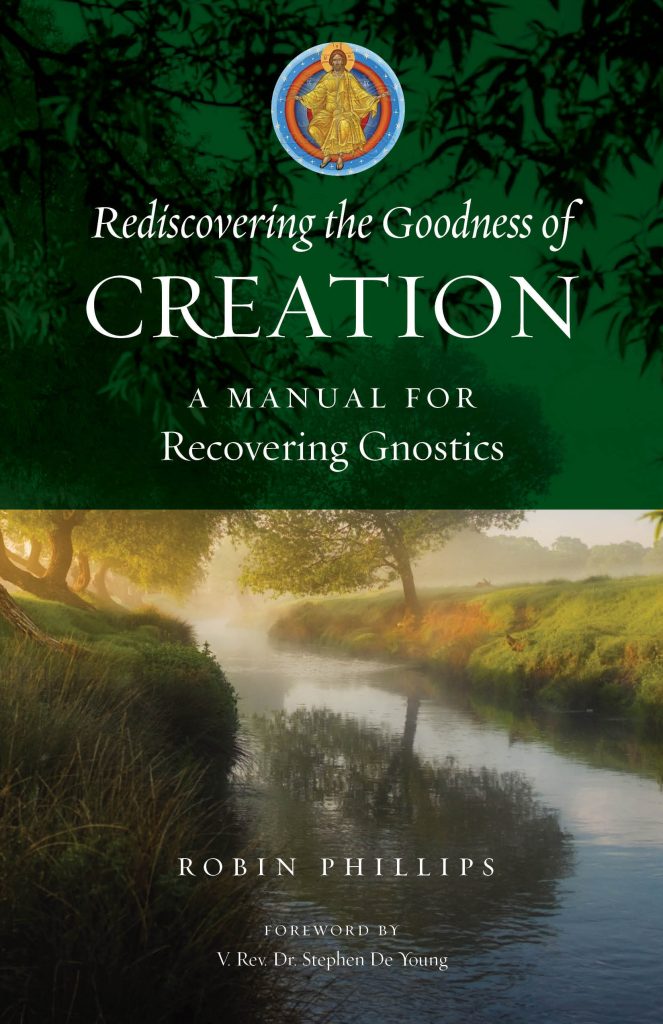From my recent book Rediscovering the Goodness of Creation: A Manual for Recovering Gnostics
Clearly, as believers we cannot embrace the givenness of things if we do not perceive the world in general, and the body in particular, as truly good. But we need more than merely an affirmation of the body’s goodness. Rather, we need a doctrine of ordered goodness. Christian communions drifting toward worldliness and hedonism have been quick to latch onto the goodness of the world, but with a shrunken doctrine of goodness disconnected from order and coherence. As such, modern Christianity has often merely followed the cultural zeitgeist, which makes an idol out of the body while also rebelling against the body and its internal order. For example, modern Christianity often defends actions that bring spiritual harm to the body (i.e., immorality, immodesty, and various forms of sexual experimentation) precisely under the banner of being body-affirming. This inconsistency became possible when our concept of “the good” became untethered from the idea of the real (which is to say, disconnected from any truth about the good), thus collapsing goodness into subjectivism.33 Within such a scheme, to say “creation is good” amounts to little more than saying, “I like the world.” The material world thus becomes so much raw material that we can create meaning out of through pleasure-seeking activities or through rendering the world useful toward functional ends.
By contrast, the Bible’s doctrine of the body situates it within a cosmos pregnant with meaning and purpose; hence, we cannot disconnect the goodness of the body from its natural teleology, nor can can we separate it from the role God calls us to play, through holy living and right worship, as worshiping stewards in the heaven-earth synthesis. But goodness, to be truly good, must be an ordered goodness. That is why, in the traditional Orthodox understanding, the ordered goodness of the world does not emerge out of God’s arbitrary naming activity but from the fact that the world is a real theophany (unveiling) of a heavenly order, an actual microcosm of, and participation in, eternal realities. As St. Staniloae observed, echoing the categories of St. Maximos the Confessor, “the divine Logos is reflected in the logoi of things.” Precisely because there is an organic relation between the Logos and the logoi of things, between Creator and creation, the freedom of the world does not threaten God’s sovereignty. Just as God, as the first cause, makes the nature of dogs to be doggy and not un-doggy, so God’s providence is the cause, not the enemy, of the freedom, rational coherence, and ordered goodness of the cosmos.The human body’s relation to the ordered cosmos reached its pinnacle when the Creator became enfleshed in a human body. The Incarnation was important, not simply for Jesus’ journey to the cross, but because He confirmed the goodness of the material world through becoming part of it. Because the material world contains God, it cannot be evil, nor can it lack spiritual coherence. Moreover, the salvation Christ purchased offers a way, not to escape from our material body, but for our experiences in the flesh to be transformed, so we can flourish according to our proper telos. That telos is nothing short than fulfilling our vocation as kings and priests, and thus to participate in the world’s healing.


